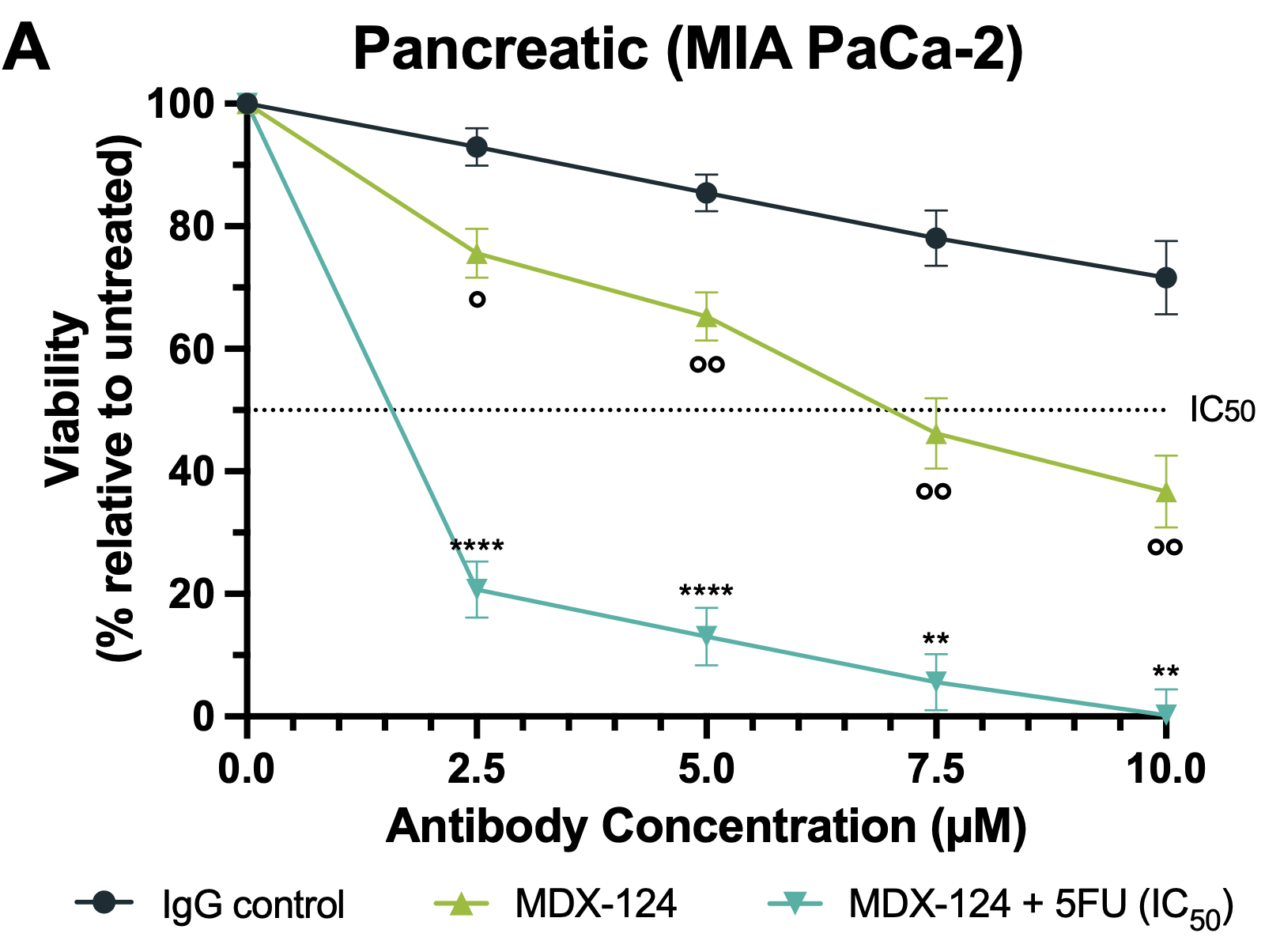
Data shows powerful synergy in combination with standard cancer treatments.
21 January 2022
Medannex today announced new data for their first-in-class targeted agent, MDX-124 showing significant anti-tumour activity in preclinical pancreatic cancer models. The results were released at the American Society of Clinical Oncology (ASCO) Gastrointestinal Cancer Symposium in San Francisco, USA.
MDX-124 induces cell cycle arrest, preventing cancer cells progressing from the growth phase (G1) to the DNA synthesis phase (S). This causes a significant reduction in cancer cell proliferation and greatly increases primary tumour necrosis. Furthermore, MDX-124 significantly decreases cancer cell migration and reduces both the incidence and burden of metastatic spread – the major cause of cancer mortality.
In December, Medannex released data showing MDX-124 has potent activity in breast cancer models and significant synergy when combined with widely used chemotherapies cisplatin and paclitaxel. Today’s data demonstrate synergy between MDX-124 and two additional chemotherapies, 5-FU and gemcitabine, which are standard-of-care treatments for several cancers, including pancreatic.
Professor Daniel Palmer, of the University of Liverpool’s Department of Molecular and Clinical Cancer Medicine, commented: ‘Pancreatic cancer is incredibly challenging and we desperately need new therapies. These non-clinical data suggest that MDX-124 could provide a new treatment option as a single agent or in combination with established cancer therapies and clinical trials are now eagerly anticipated.’
Medannex CEO Ian Abercrombie said: ‘We are very encouraged by these data, especially the impressive added benefit when combining MDX-124 with established cancer drugs. This demonstrates great potential for our agent to improve outcomes for patients. We look forward to exploring this further in our imminent First-in-Human study, which will include patients with pancreatic cancer.’
The new data were generated by Medannex in collaboration with the University of Liverpool, ARU (Cambridge) and Brighton & Sussex Medical School.